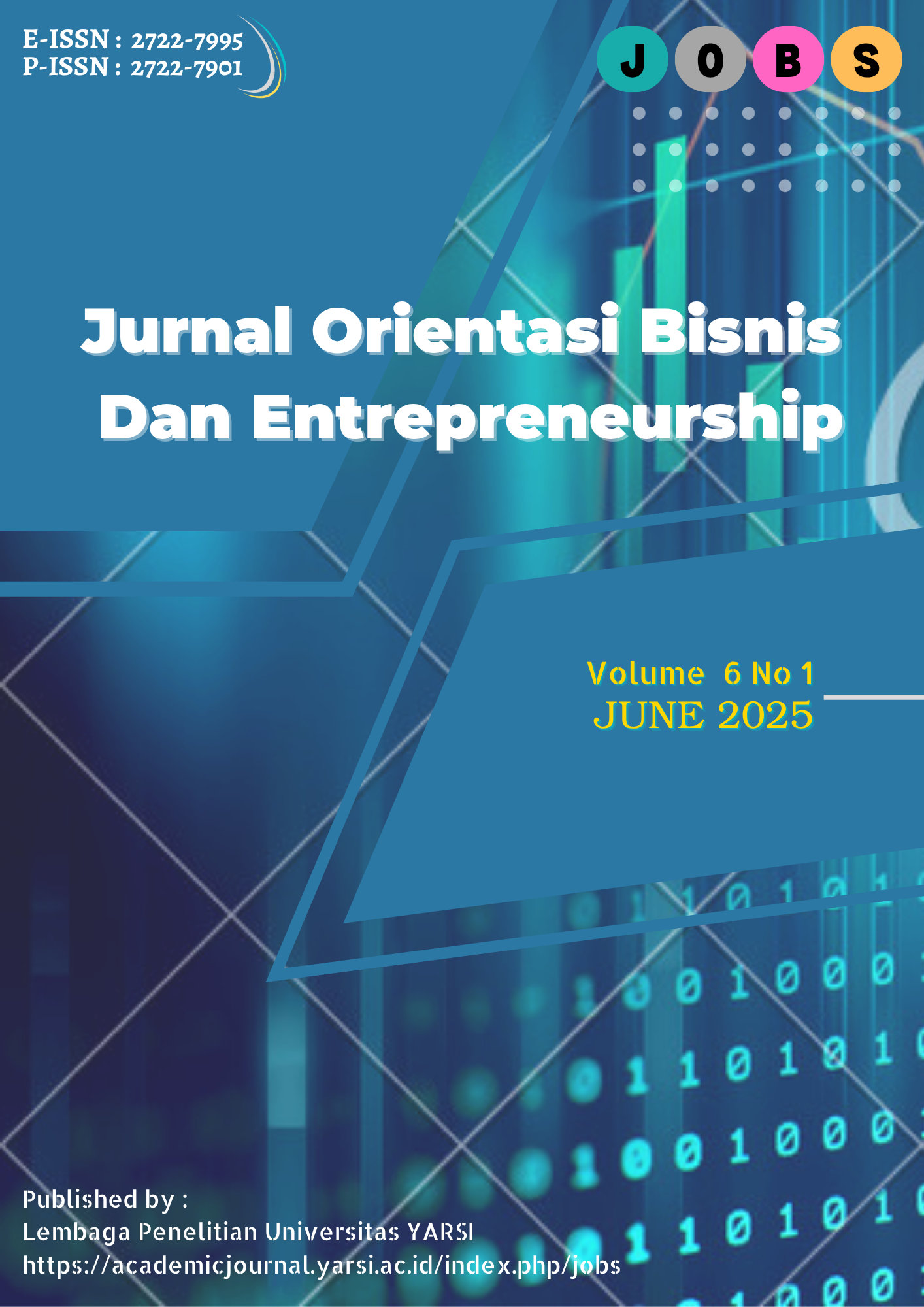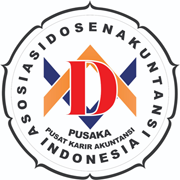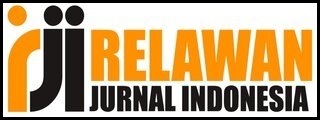The Importance of Improving Employee Performance through Optimizing Job Training, Work Motivation and Work Ethic: A Literature Review
Keywords:
Job Training, Work Motivation, Work Ethic, Employee PerformanceAbstract
This study examines the influence of job training, work motivation, and work ethic on employee performance by reviewing articles from 2019 to 2024. The analysis focuses on methodological approaches, empirical findings, and theoretical implications to understand how these factors impact performance. Job training plays a crucial role in developing human resources by enhancing employee skills and aligning them with organizational needs. Tailored training programs address individual differences in skills and motivations, helping employees understand their roles better. Work motivation is essential for driving employees to achieve organizational goals. Similarly, a strong work ethic fosters dedication and enthusiasm, reflecting positively on both individual and organizational success. Establishing a work culture that promotes excellence is critical for sustained performance improvement. The findings of this study are expected to guide practitioners and policymakers in designing effective human resource development programs. Through a comprehensive literature review, alternative research problems, innovative topic ideas, and opportunities for further exploration are identified. This approach emphasizes the importance of integrating technical skills with mindset, attitude, and psychological motivation, highlighting a holistic strategy for enhancing employee performance in dynamic work environments.
References
Akther, S., & Tariq, J. (2020). The Impact of Effective Training on Employee Retention: A Study in Private Banks of Bangladesh. Journal of Economics and Business, 3(1), 96–114. https://doi.org/10.31014/aior.1992.03.01.181
Amaliyah, H., & Fahrullah, A. (2020). ISLAMIC LEADERSHIP, WORK MOTIVATION, AND EMPLOYEE PERFORMANCE OF BANK JATIM SYARIAH SURABAYA. Journal Intellectual Sufism Research (JISR), 2(2), 1–6. https://doi.org/10.52032/jisr.v2i2.64
Ambarita, M. H., Simatupang, S., & Candra, V. (2020). Efek Mediasi Motivasi Atas Hubungan Etos Kerja Terhadap Kinerja Pegawai Dinas Kehutanan UPT. Kesatuan Pengelolaan Hutan Wilayah II Pematangsiantar. Jesya (Jurnal Ekonomi & Ekonomi Syariah), 3(2), 168–178. https://doi.org/10.36778/jesya.v3i2.196
Ariprabowo, T., Sari, D. M., & Sukaris. (2021). The Role of Motivation, Work Discipline and Training in Improving Employee Performance. Innovation Research Journal, 2(2), 128–135. https://doi.org/10.47191/jefms/v6-i10-30
Awang, A. H., Ismail, R., & Noor, Z. M. (2015). Training Impact on Employee ’ S Job Performance : A Self Evaluation. Economic Research-Ekonomska Istraživanja, 78–90. https://doi.org/10.1080/1331677X.2010.11517434
Bataineh, M. T. (2020). THE EFFECT OF WORK ETHICS ON JOB PERFORMANCE IN INTERNATIONAL SMES IN AL-HASSAN INDUSTRIAL ESTATE. International Review of Management and Marketing, 10(5), 154–158. https://doi.org/10.32479/irmm.10364
Boadu, F., Xie, Y., Du, Y.-F., & Dwomo-Fokuo, E. (2018). MNEs Subsidiary Training and Development and Firm Innovative Performance: The Moderating Effects of Tacit and Explicit Knowledge Received from Headquarters. Sustainability, 10(11), 4208. https://doi.org/10.3390/su10114208
Chen, M. (2014). The Effect of Training on Employee Retention. https://doi.org/10.2991/gecss-14.2014.90
Cik, A., Awaloedin, D. T., Dariati, N., Pradini, G., & Karyatun, S. (2024). The Effect of Compensation, Motivation and Work Ethics on The Performance of Employees of The Directorate General of Human Rights, Ministry of Law and Human Rights of The Republic of Indonesia, South Jakarta. International Journal of Economics, Management, Business, and Social Science (Ijembis), 4(1), 628–639. https://doi.org/10.59889/ijembis.v4i1.383
Daspar, D. (2020). Pengaruh Lingkungan, Motivasi dan Disiplin Kerja Terhadap Kinerja Karyawan. EKOMABIS: Jurnal Ekonomi Manajemen Bisnis, 1(02), 159–166. https://doi.org/10.37366/ekomabis.v1i02.31
Davar, S., & Parti, M. (2013). Does Training Affect Productivity of Employees? Two Methods of Meta-Analysis. The Indian Journal of Industrial Relations, 48, 651. https://api.semanticscholar.org/CorpusID:141924417
Ferine, K. F. (2020). The Effect of Training, Work Motivation and Organizational Culture on Employee Performance of PT. Sumber Alfaria Trijaya, Tbk Medan Branch. International Journal of Research, 7(9), 344–353.
Gheitani, A., Imani, S., Seyyedamiri, N., & Foroudi, P. (2019). Mediating effect of intrinsic motivation on the relationship between Islamic work ethic, job satisfaction, and organizational commitment in banking sector. International Journal of Islamic and Middle Eastern Finance and Management, 12(1), 76–95. https://doi.org/10.1108/IMEFM-01-2018-0029
Grabowski, D. (2021). Relationships between work ethic and motivation to work from the point of view of the self-determination theory. In PLoS ONE (Vol. 16, Issue 7). https://doi.org/10.1371/journal.pone.0253145
Grabowski, D., Chudzicka-Czupała, A., & Stapor, K. (2021). Relationships between work ethic and motivation to work from the point of view of the self-determination theory. PLOS ONE, 16(7), e0253145. https://doi.org/10.1371/journal.pone.0253145
Grip, A. De, & Sauermann, J. (2024). The effect of training on productivity : The transfer of on-the-job training from the perspective of economics. Educational Research Review, 8(2013), 28–36. https://doi.org/10.1016/j.edurev.2012.05.005
Haddaway, N. R., Page, M. J., Pritchard, C. C., & McGuinness, L. A. (2022). PRISMA2020 : An R package and Shiny app for producing PRISMA 2020‐compliant flow diagrams, with interactivity for optimised digital transparency and Open Synthesis. Campbell Systematic Reviews, 18(2). https://doi.org/10.1002/cl2.1230
Hidayah, R. U., & Nazaruddin, I. (2017). The Effect of Leadership Style, Work Motivation, Organizational Culture and Job Discipline on Employees Performance. In ICoSI 2014 (pp. 255–262). Springer Singapore. https://doi.org/10.1007/978-981-287-661-4_26
Ismail, M. B. M., Mubarack, K. M., & Azhar, A. G. M. (2015). Relationship between employee aspects and employee performance. Journal of Management, 12(1), 58. https://doi.org/10.4038/jm.v12i1.7587
Jan, S., & Hashim, M. (2014). The Impact of Training and Development on Employees Performance and Productivity A case study of United Bank Limited Peshawar City ,. 4(4), 86–98. https://doi.org/10.6007/IJARBSS/v4-i4/756
Khotijah, S., & Helmy, I. (2021). Pengaruh Kepemimpinan Islami dan Etika Kerja Islam Terhadap Kinerja dengan Motivasi Kerja Sebagai Variabel Intervening. Jurnal Ilmiah Mahasiswa Manajemen, Bisnis Dan Akuntansi (JIMMBA), 3(3), 442–460. https://doi.org/10.32639/jimmba.v3i3.853
KUMARI, S. (2022). the Impact of Training and Development on Employees Retention. Interantional Journal of Scientific Research in Engineering and Management, 06(05), 1–17. https://doi.org/10.55041/ijsrem13044
Li, C. (2020). Self-efficacy theory. In Routledge Handbook of Adapted Physical Education (pp. 313–325). Routledge. https://doi.org/10.4324/9780429052675-24
Lorincová, S., Štarchoň, P., Weberová, D., Hitka, M., & Lipoldová, M. (2019). Employee Motivation as a Tool to Achieve Sustainability of Business Processes. Sustainability, 11(13), 3509. https://doi.org/10.3390/su11133509
Mohd Nasurdin, A., Tan, C. L., & Naseer Khan, S. (2020). Can high performance work practices and satisfaction predict job performance?An examination of the Malaysian private health-care sector. International Journal of Quality and Service Sciences, 12(4), 521–540. https://doi.org/10.1108/IJQSS-06-2019-0090
Mubarok, E. S., & Darmawan, J. (2019). The Influence of Training, Motivation, and Work Ethics on the Internal Communication and Their Impact on the Employee Performance. 11(24), 86–93. https://doi.org/10.7176/EJBM
Ngo, L. V., Nguyen, N. P., Huynh, K. T., Gregory, G., & Cuong, P. H. (2019). Converting internal brand knowledge into employee performance. Journal of Product & Brand Management, 29(3), 273–287. https://doi.org/10.1108/JPBM-10-2018-2068
Ritonga, S. (2019). PENGARUH IKLIM ORGANIASI DAN ETOS KERJA TERHADAP KINERJA KARYAWAN PT. CHAROEN POKPHAND INDONESIA MEDAN DENGAN MOTIVASI SEBAGAI VARIABEL INTERVINING. Jurnal Manajemen Dan Bisnis, 14–27. https://doi.org/10.54367/jmb.v19i1.463
Rodríguez, J., Saltiel, F., & Urzúa, S. (2022). Dynamic treatment effects of job training. Journal of Applied Econometrics, 37(2), 242–269. https://doi.org/10.1002/jae.2877
Santika, I. P., Antari, N. L. S., & Pariarta, I. M. G. (2021). Pengaruh Pendidikan Dan Pelatihan Terhadap Kompetensi Serta Dampaknya Pada Kinerja Pegawai Rumah Sakit Umum Daerah Mangusada Bandung. Jurnal IPTA, 16(2), 14.
Sapada, A. F. A., Modding, H. B., Gani, A., & Nujum, S. (2017). The Effect of Organizational Culture and Work Ethics on Job Satisfaction and Employees Performance. The International Journal of Engineering and Science (IJES), 6(12), 28–36. https://doi.org/10.9790/1813-0612042836
Setiawan, Y., Junaedi, A. T., & Chandra, T. (2021). the Effect of Employee Work Ethics and Training on Employee Performance and Service Quality At Pt Xl Axiata Riau. Journal of Applied Business and Technology, 2(3), 194–205. https://doi.org/10.35145/jabt.v2i3.76
Stam, K., Verbakel, E., & De Graaf, P. M. (2013). EXPLAINING VARIATION IN WORK ETHIC IN EUROPE. European Societies, 15(2), 268–289. https://doi.org/10.1080/14616696.2012.726734
Suhardi, A. R., Oktari, S. D., & Budiawan, A. (2023). The Influence of Training Programs and Motivation on Employee Work Productivity. International Journal of Science and Society, 5(4), 887–896. https://doi.org/10.54783/ijsoc.v5i4.876
Taiwo, S. F., Dr. Alase, P. O., Dr. Hassan, Tolani, A., & Okusanya, Adedoyin, O. (2021). Training and Development Practices and Employees’ Performance in Selected Manufacturing Companies in Nigeria. International Journal of Engineering and Management Research, 11(2), 136–142. https://doi.org/10.31033/ijemr.11.2.20
Trépanier, S., Vallerand, R. J., Ménard, J., & Peterson, C. (2020). Job resources and burnout: Work motivation as a moderator. Stress and Health, 36(4), 433–441. https://doi.org/10.1002/smi.2939
Van den Hee, S. M., van Hooft, E. A. J., & van Vianen, A. E. M. (2020). A temporal perspective of job search: The relation between personality attributes, motivation, job search behavior, and outcomes. Journal of Vocational Behavior, 122, 103489. https://doi.org/10.1016/j.jvb.2020.103489
Vemberi, Y., Wening, N., & Fitriastuti, L. I. (2024). The Effect of Group Cohesion , Loyalty , Leadership on The Quality of Organizational Decision Making : Literature Review. 5(2), 1299–1310.
Vuong, T. D. N., & Nguyen, L. T. (2022). The Key Strategies for Measuring Employee Performance in Companies: A Systematic Review. Sustainability, 14(21), 14017. https://doi.org/10.3390/su142114017
Wardhani, R. K. (2022). The Effect of Job Training, Motivation, and Work Ethic to the Workforce Performance. International Journal on Social Science, Economics and Art, 12(1), 32–38. https://doi.org/10.35335/ijosea.v12i1.68
Downloads
Published
How to Cite
Issue
Section
License
Copyright (c) 2025 Agung Hartadi, Sujoko Sujoko

This work is licensed under a Creative Commons Attribution-ShareAlike 4.0 International License.

This work is licensed under a CC Attribution-ShareAlike 4.0

 Agung Hartadi
Agung Hartadi
 Doctoral Program, Yogykarta University of Technology
Doctoral Program, Yogykarta University of Technology











